UPDATE | July 26, 2019
* The original text of this article is written in Chinese. "Irish Kazoku" Immediately before the end of the same period as Japan's international studies, the future of international studies in Japan. "Rules" for life in Japan, normal for Japanese customs, Tadashi for foreigners' theory, surprising and terrific, for the return of local regions, and now for the sake of living in Japan.
INDEX
In order to better carry out your study abroad life in Japan and enjoy a beautiful exotic time, it is not enough to learn Japanese well. In order to integrate into the real Japanese society, let us begin to understand slowly from the most basic customs and habits.
[PR]
The smokers are more social. There is a large proportion of smokers in Japan, but everyone is "smoker in order".
First of all, many public places are banned from smoking. Such as stations, public restrooms, office buildings, roads, etc. In particular, smoke detection devices are installed in public restrooms, and if smoke is detected, an alarm will sound. However, in these public places and facilities, specific smoking places are prepared for smokers. Including meals will be divided into smoking areas and non-smoking areas. There are also smoking rooms and non-smoking rooms in the hotel. Especially on the road, smoking while walking is not allowed. The ash that is flying with the wind will cause trouble for other pedestrians and inadvertently hurt young children. It is also not allowed to throw cigarettes at will.
Therefore, even if you are traveling for a short time, please follow the Japanese smoking rules.
In Japan, not only vehicles must obey traffic rules, but pedestrians must also abide by traffic rules. I think everyone knows the rules for the red light to stop the green light. It is especially strict in Japan. Even if there is no traffic light passing through the traffic, as long as it is a red light, everyone will wait for the signal light to turn green before it starts to move. It is very dangerous to cross the road with red light. Please be sure to obey the traffic rules.
In addition, when riding a bicycle in Japan, you must also pay attention to your bicycle must be in the process of registration of the crime prevention before you can go on the road. If you are buying a bicycle yourself, you will need to register initially. If it is a bicycle donated by someone else, a nominal change is required. Bicycles should not be parked and must be parked at the designated location. Otherwise it will be withdrawn and a withdrawal fee will be paid.
Be sure to turn on the lights at night so that people in the distance can see you.
In addition, the following items are not allowed.
Drinking and cycling, side by side
Red light
Riding a bicycle
Riding an umbrella or riding a bicycle while using a mobile phone
The classification of household waste in Japan is very strict, and littering can cause serious harm to the environment. Therefore, every household in Japan will handle garbage in accordance with local rules.
Garbage is mainly divided into: combustible garbage, non-burnable garbage, large-scale garbage, and recyclable garbage.
The classification is mainly based on the rules of the place of residence, and the dates and locations of different types of garbage disposal are also different. Please follow the local rules.
Large-scale garbage (furniture, bedding, etc.) should be disposed of in accordance with the regulations of the local office.
In addition, there are very few trash cans on the Japanese road. Therefore, if you are going out to carry garbage bags with you, there are some shopping malls and convenience stores as well as trash cans in the stations. Do not throw garbage anywhere.
Vehicles are basically small spaces, and noise can cause problems for the surrounding passengers.
Therefore, in Japan, it is forbidden to use mobile phones to talk whether in the tram or on the bus. And you need to set your phone to vibrate or silent mode. In the vicinity of the priority seat, it is best to turn off the power.
In addition, it is important to note that excessive volume of the headphones can inadvertently disturb the surrounding passengers.
In addition to noise, there are other behaviors that will disturb others.
For example: eating strong food in the car, makeup, sitting on the ground, standing at the door to prevent other passengers from getting off and so on.
When moving to Japan to change the address, you need to declare it in advance with the ward office in your area. If the old and new addresses are in different districts, you must go to the ward office where the old address is located before you move to report the transfer, and transfer to the ward office where the new address is located as soon as possible after moving. In addition, if you obtain a driver's license in Japan, you must go to the police station where the new address is located to change the address.
Alternatively, you can go to the post office to make an address change. The post office will forward the mail to you at the new address for a period of one year. Please change your credit card, phone number and other information submitted for the old address within one year.
There must be many unique customs in everyone's hometown. Obeying the local order is a respect for the local people, which will also make the Japanese more comfortable to accept foreigners. I hope everyone can have a good time to study in Japan.
■ Recommended for those who read this article

アクセス日本留学Editorial Department.アクセス日本留学" where foreign students can request materials to find Japanese schools, and hold "advancement information sessions for foreign students".
[PR]
[PR]